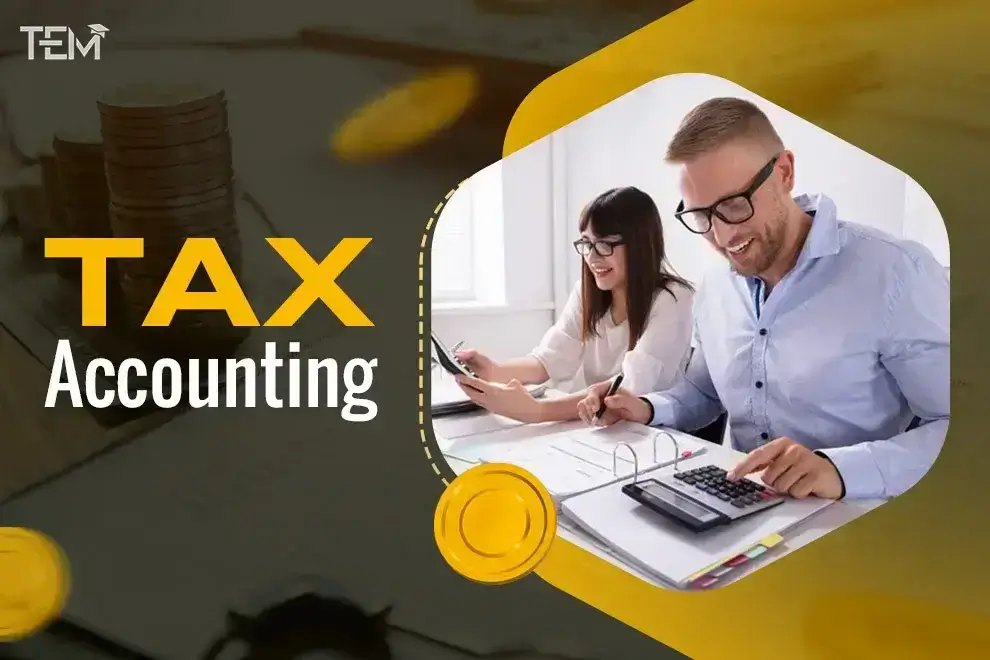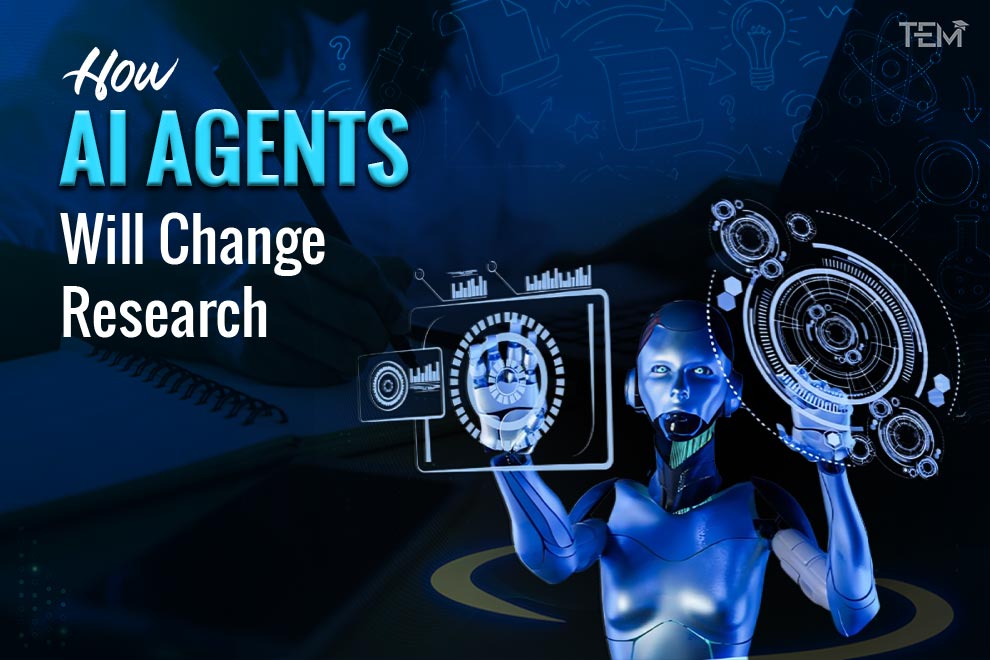Is that little voice in your head whispering that AI is coming for your tax accounting job? Let’s be real, in a world that’s changing at lightning speed, that fear is totally normal. The pressure is ON. You’re trying to be a rockstar at your current job while this wave of new technology just keeps getting bigger. But what if I told you this isn’t a threat, but the single biggest opportunity of your career?
This isn’t just another article. Think of this as your personal roadmap to not just surviving, but absolutely thriving. We’re going to dive deep into how AI is flipping the script on tax accounting. You’ll see exactly how to go from being a traditional number-cruncher to a forward-thinking advisor who uses data to make magic happen. Ready to get excited about your future? Let’s jump in and completely transform your career for the AI era!
Let’s Learn How to Future-Proof Your Tax Accounting Career With AI
1. The AI in Tax Accounting: Why Future-Proofing Isn’t Optional
Wow, things in the tax world are getting complicated, aren’t they? It feels like a ‘perfect storm.’
- The tax code itself has ballooned by 47 percent in words over the last 30 years. Just think about the extra brainpower needed to even understand that!
- On top of that, clients want answers and strategic advice yesterday. They’re not just looking for someone to file their taxes; they want a guide for the future.
- And the data! Tax departments are drowning in information, which leads to slow, manual work and, you guessed it, a higher chance of mistakes.
Staying still is the biggest risk you can take right now. The good news? AI is swooping in as this incredible force for change. And believe me, it’s catching on fast.
- By 2025, a solid 21% of tax, audit, and accounting firms will be using Generative AI across their operations. That’s a huge leap from just 8% the year before!
- Internal auditors are so convinced that they expect AI use to double to around 80% by 2026.
- The money is flowing in, too. Investment in AI for accounting is projected to grow at a mind-blowing 42.5% compounded annually by 2027. That’s some serious cash!
These investments are paying off big time, creating efficiency boosts that could add trillions of dollars to global productivity. So, the real danger isn’t AI—it’s getting left behind.
2. From Number Cruncher to Strategic Advisor: The Evolving Role of the Tax Accountant
Remember the old days? A tax accountant was seen as that super-meticulous person in the corner, head-down, crunching numbers, balancing ledgers, and making sure all the boxes were ticked. Their world was all about:
- Chasing down tax forms.
- Preparing returns for filing.
- Auditing records for tiny errors.
- Keeping tax databases organized.
It was a reactive job, all about following the rules. But today? AI is completely rewriting that job description. Get ready to shift from looking in the rearview mirror to staring straight into the future. The AI-powered tax pro is all about delivering high-impact services like real-time tax forecasting and getting ahead of risks before they even become problems. How cool is that? AI can sift through mountains of data to spot trends, assess risks, and show you the real-time impact of tax laws.
Just picture a day in your life with AI as your sidekick.
- You walk in, and AI has already gathered and organized all your client documents. No more manual chasing!
- A new document comes in? AI scans it, sorts it, and flags anything that looks off—all on one clean dashboard.
- When it’s time for tax prep, AI tools populate the forms with pinpoint accuracy, highlighting potential deductions and credits you might have missed. This frees up your brain for the important stuff: judgment and strategy.
- Throughout the day, AI is your personal assistant, sending out e-signature requests, tracking them, and sending reminders.
- It’s also your watchdog, constantly monitoring deadlines and giving you real-time tax liability projections.
You’re no longer just crunching numbers; you’re a strategic advisor, delivering proactive, data-driven insights with a whole new level of confidence. Now that’s a career glow-up!
3. The AI Toolkit: Demystifying the Technologies
To really own your future, you need to know your tools. Let’s break down the AI tech that’s changing the game in tax accounting. Don’t worry, it’s simpler than you think!
- Robotic Process Automation (RPA): Think of these as your personal software ‘bots.’ You give them the repetitive, rule-based tasks—like data entry or submitting tax filings—and they get it done with lightning speed and accuracy. For example, an RPA bot can take complex K-1 data and populate it across hundreds of tax returns in a flash, saving you hours of tedious work.
- Machine Learning (ML): This is the ‘brain’ of the operation. ML algorithms actually learn from data. They can automate tricky tax calculations, flag things that don’t look right, and even suggest deductions. The Australian Taxation Office is already using ML to slash assessment times from months to just days. That’s super-impressive!
- Natural Language Processing (NLP): This is all about teaching computers to understand human language. NLP can read invoices, receipts, and emails, pulling out the important info automatically. You can even ask it questions in plain English, like ‘find me financial statements from the last five years,’ and it will fetch them for you. It’s like having a conversation with your database.
- Generative AI: This is the creative genius. Generative AI doesn’t just analyze; it creates. It can draft financial forecasts, simulate different money scenarios, and write up insightful reports. In tax, it can help draft forms, personalize advice, and streamline planning, letting you focus on being the brilliant advisor your clients need.
These tools aren’t just about being faster; they’re about being smarter. They empower you to step away from the mundane and into a much more valuable, strategic role.
4. The Future-Proof Skillset: 7 Essential Competencies for the AI-Powered Tax Accountant
To truly shine in this new AI-driven world, you’ll need to blend your rock-solid tax knowledge with some powerful new skills. Here are the seven essentials that will make you unstoppable.
- Data Analytics:
AI will do the heavy lifting with data, but you’re the one who needs to look at it and see the story. Your ability to interpret complex patterns and turn them into smart, strategic advice is your new superpower.
- Actionable Tip: Don’t just read about it—get your hands dirty! Play with data visualization tools and look for courses specifically on data analytics for tax professionals.
- Strategic Thinking:
Your job is no longer just about compliance. It’s about seeing the big picture, anticipating what’s next, and helping your clients navigate the future with proactive tax strategies.
- Actionable Tip: Become a student of business. Read widely, participate in strategy sessions, and maybe even find a mentor who can help you sharpen your strategic instincts.
- Tech Proficiency:
You don’t need to be a coder, but you do need to be comfortable with the tools of the trade—RPA, machine learning, and generative AI. Knowing your way around the tech will make you incredibly efficient.
- Actionable Tip: Dive in! Watch tutorials, get certified, and experiment with tax tech software. The more you use it, the more powerful it becomes in your hands.
- Client Communication:
With AI generating complex insights, your ability to explain them clearly and simply has never been more important. Building trust and making sure everyone is on the same page is everything.
- Actionable Tip: Focus on being a great listener. Practice explaining complex ideas in simple terms. Workshops on consultative communication can be a game-changer.
- Ethical Judgment:
AI brings up new ethical questions about data privacy and potential biases. Your strong ethical compass is what will maintain integrity and trust in the profession.
- Actionable Tip: Stay on top of the latest ethical guidelines. Talk with your peers about challenges and be aware of things like AI’s hallucinations to ensure you’re always acting with integrity.
- Interdisciplinary Knowledge:
Tax doesn’t live in a bubble. It connects with law, finance, and technology. The more you know about these related fields, the more innovative and effective your solutions will be.
- Actionable Tip: Get curious! Attend seminars outside of pure tax, collaborate with professionals in other fields, and broaden your perspective.
- Emotional Intelligence:
This is the one thing AI can never replace. Your ability to connect with clients on a human level, show empathy, and manage relationships is priceless.
- Actionable Tip: Practice self-awareness and empathy. Mindfulness exercises can be surprisingly helpful. Don’t be afraid to ask for feedback on your communication style.
5. Your 5-Step Action Plan to Future-Proof Your Career, Starting Today
Feeling pumped? Let’s turn that excitement into action. Here’s a simple 5-step plan to get you started on future-proofing your career right now.
- Conduct a Self-Assessment:
First, take an honest look in the mirror. Where are you with technology right now? Are you comfortable with data analytics? Be real about your strengths and where you need to grow. This is your personal starting line.
- Commit to Continuous Learning:
The learning never stops! This is a journey, not a destination. Enroll in courses made for accountants, like the ‘AI For Accountants Certificate Program’ or the ‘Certified Artificial Intelligence (AI) for Accountants Training Course.’ Platforms like Coursera are full of gems, too.
- Gain Hands-On Experience with AI Tools:
Time to play! Get your hands on AI tax software like Black Ore, Filed, TaxGPT, or H&R Block’s AI Tax Assist. See what they can do. Explore RPA solutions like UiPath or Automation Anywhere. The more you use these tools, the less intimidating they become.
- Build a Professional Network:
You’re not in this alone! Connect with other tax pros, directors, and tech experts. Go to industry events like the ITR AI in Tax Forum. Sharing ideas and experiences is one of the fastest ways to learn and grow.
- Shift Your Mindset:
This is the most important step. See AI as your partner, not your replacement. It’s a tool that frees you up to do the high-impact, consultative work you love. Become a champion for the ethical use of AI and set your sights on becoming the trusted tax advisor of the future.
6. Overcoming the Hurdles: Addressing the Ethical and Practical Challenges of AI in Tax
As exciting as AI is, it’s not a magic wand. There are some real challenges we need to tackle head-on to use it responsibly. Being aware of these hurdles is key to building trust and making sure we get it right.
- Data Privacy:
This is a big one. AI systems need a lot of sensitive data to work, which means we have to be obsessed with protecting it. The risk of breaches is real. That’s why strong encryption, secure storage, and tight access controls are non-negotiable. It’s also our job to teach clients why using professional, secure AI tools is so much safer than open-source alternatives.
- Algorithmic Bias:
AI learns from the data we give it. If that data has biases, the AI will learn them too, leading to unfair results. For example, studies have shown that some audit-selection algorithms unfairly target certain groups, like Black taxpayers claiming the earned income tax credit. We have to fight this by using clean, balanced data and keeping a human eye on the outcomes to correct for any unfairness.
- The ‘Black Box’ Problem:
Sometimes, it’s hard to know how an advanced AI reached a certain conclusion. This ‘black box’ makes it tough to verify the AI’s work, which is a real problem for auditors and accountability. The solution is to push for more ‘explainable AI,’ so we can understand the ‘why’ behind its decisions.
- Implementation Costs:
Let’s be honest—this stuff isn’t cheap. Getting AI-based accounting software up and running can cost anywhere from $40,000 to $350,000, and sometimes much more. Then there are the ongoing costs for maintenance and training. A smart way to manage this is to start with smaller projects to prove the value and look at cloud-based options to keep initial costs down.
By facing these challenges with open eyes, we can harness the incredible power of AI while protecting our clients and our professional integrity.
My Opinion
Let’s get one thing straight: the future of AI in tax accounting isn’t about robots taking over. It’s about creating a powerful partnership that elevates our entire profession. Think of it as the rise of the ‘augmented accountant.’ Technologies like RPA, machine learning, and generative AI are taking care of the tedious, repetitive tasks, which is fantastic news. Why? Because it frees up our brilliant human minds to focus on what truly matters: high-level strategic advice, real-time forecasting, and proactive risk management.
We’re moving from being historians who report on what happened to being architects who shape what will happen next. This synergy—where human expertise is amplified by AI—is the real magic. It allows us to deliver more personalized value, build deeper client trust, and drive the industry forward with more insight and precision than ever before. This isn’t obsolescence; it’s evolution.
Here Are Some Future Impacts of AI in Tax
- AI-Driven Tax Legislation:
Imagine governments using AI to design smarter, fairer, and loophole-free tax laws. It’s already starting to happen! This will create a whole new world of compliance challenges and opportunities for experts like you.
- Subscription Models for Tax Services:
Say goodbye to billing by the hour. The future is about ongoing, AI-monitored advisory services. This means more predictable income for firms and deeper, year-round relationships with clients.
- Hyper-Personalized Tax Planning for the Masses:
Sophisticated tax planning used to be just for the ultra-wealthy. Not anymore! AI can now offer incredibly tailored strategies to everyday people and small businesses, empowering everyone to be smarter with their money.
- The Gamification of Tax Compliance:
What if filing taxes felt less like a chore and more like a game? AI is making it happen with interactive tools and reward systems that boost engagement and make compliance feel easy. Taiwan is even turning receipts into lottery tickets!
- AI as an Audit Shield:
Get ahead of the auditors! Companies can now use AI to run their own internal audit simulations, find potential red flags, and fix them before the real audit ever happens. This is a game-changer for risk management and peace of mind.
Feeling inspired and ready to take on the future? That’s the spirit! This knowledge is too good to keep to yourself. Share this article with your colleagues, your friends, and everyone you know in the industry. Let’s all rise to the occasion together and become the architects of our own amazing futures!










